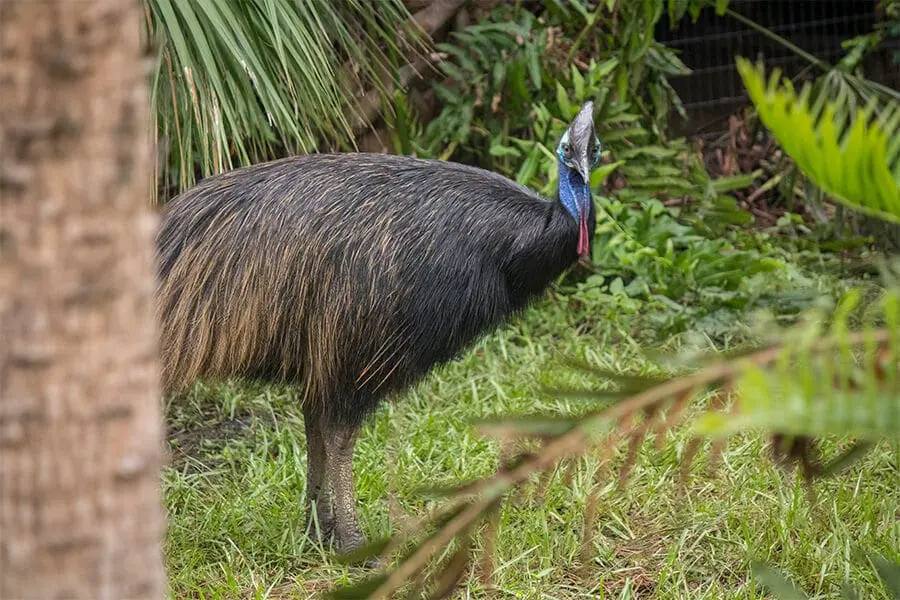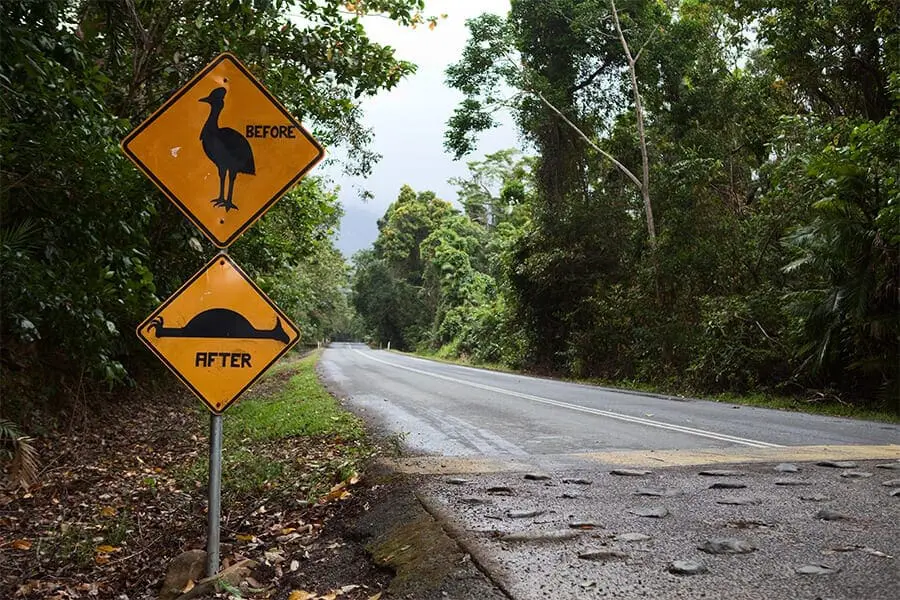

Cassowaries are beauty and beast rolled into one. Armed with razor-sharp talons capable of ripping open a grown man’s stomach with one kick, all three species (southern, northern and dwarf) also exhibit some of the most exquisite colors and patterns found in the animal kingdom. The pièce de résistance is perhaps a bony casque that sits atop the head; this impressive structure, which likely plays some role in attracting potential mates, is coated in keratin (the same protein that makes up our hair and nails).
The Zoo is home to two southern cassowaries: male Romeo and female Juliet. Both hatched here in Florida, but their wild counterparts exist in the tropical rainforests of New Guinea and northern Australia. Glossy black feathers offer protection from the thorns and other unsavory foliage a five-foot bird is bound to encounter in the understory.
Though cassowaries are well equipped to fend off natural dangers, they are struggling to adapt to manmade changes; biologists estimate only a few thousand remain. Habitat fragmentation is the primary cause of this decline—cassowaries often end up as roadkill when roaming from one section of forest to another.

Road signs such as these are a familiar sight in the cassowaries’ range.
Feral animals pose additional problems. Pigs consume and destroy foliage that makes up cassowary habitat and compete with the birds for food. Packs of dogs have been known to harass cassowaries to exhaustion and chase them away from potential food and water sources.
Cassowaries play an integral role in the maintenance of their forest ecosystem and a world without them would have consequences for all manner of wildlife. They eat more than 150 different kinds of fruit and as many as 100 plant species may depend on these birds to disperse their seeds. In turn, other animals rely on these plants for food and shelter.
In order to survive, cassowaries must have access to large swaths of habitat free of introduced species. Some governments in their native range are protecting rainforests and establishing nurseries to replenish cassowary food sources. To do our part, the Zoo has contributed to Rainforest Rescue, an Australian nonprofit dedicated to safeguarding and restoring rainforests all over the world. We encourage you to research and support organizations that defend these fragile ecosystems and the marvelous creatures that call them home.